Are you an RN with a sense of adventure? A career as a Travel Nurse could be the perfect blend of nursing and exploration. Travel nurses are registered nurses who take short-term assignments across cities, states, or even countries to fill staffing gaps. They enjoy competitive pay, flexibility in scheduling, and the thrill of new environments – all while delivering quality patient care.
This comprehensive guide breaks down what travel nursing is, how to become one, costs, duties, salary, specializations, professional resources, key skills, and a look at pros and cons of life as a “mobile RN.” By the end, you’ll see why travel nursing remains a rewarding path for nurses seeking growth and adventure.
What Is a Travel Nurse?
Simply put, a travel nurse is a licensed nurse who takes temporary jobs wherever nurses are needed most. Unlike a staff RN who works permanently at one facility, a travel nurse works for a staffing agency and moves between hospitals, clinics, or other facilities on contracts typically 8–13 weeks long. Travel nurses are fully qualified RNs (usually with at least 1–2 years of experience) who step in to cover for shortages, leaves, or seasonal spikes in patient volume. They might work in a busy city ER this month and a rural ICU next month.
How are travel nurses different from other RNs?
In essence, “travel nursing” is a mode of employment rather than a distinct nursing role. A travel nurse holds the same RN license and can have the same specialty training as any hospital nurse – the difference lies in working short-term at various locations instead of one steady job. They must quickly adapt to new teams and policies with each assignment. Travel nurses “fill in the gaps” at facilities facing vacant positions or surges in demand, ensuring safe patient care continues. Travel nurses are agile and versatile, often jumping from a hospital ward one contract to a community clinic the next, wherever their skills are needed most.
A Travel Nurse is a registered nurse who works temporary contracts via an agency, bringing their skills to hospitals and clinics in high-need areas. They are experienced RNs who thrive on change and flexibility, stepping in wherever patients need care.
Most agencies and employers require travel nurses to have a solid foundation of clinical experience (often 2+ years). They also often need a multi-state license or to obtain new state licenses quickly, since assignments may cross state lines. The Nurse Licensure Compact (NLC) helps by allowing one license to cover many states – currently about 39 states participate.
How to Become a Travel Nurse
Becoming a travel nurse involves first becoming a competent RN. You’ll need the same foundation as any nurse – education, licensure, and experience – plus a few extra steps to prepare for a traveling career. Here are the 6 steps to launch your travel nursing journey:
1. Complete Nursing Education
Earn an RN qualification through an ADN (Associate Degree in Nursing) or BSN (Bachelor of Science in Nursing) program. (An LPN diploma can lead to LPN travel roles, but RN is the most common route.) This takes about 2–4 years. A BSN may open more opportunities, as many agencies prefer nurses with a four-year degree.
2. Pass the NCLEX-RN Exam & Get Licensed
After graduation, take the national licensing exam (NCLEX-RN) to obtain your RN license. The NCLEX costs about $200 and tests your nursing knowledge. Apply for a state RN license – if you plan to travel, consider a compact license (NLC) which grants privilege to practice in 30+ states with one license.
3. Gain Clinical Experience
Work 1–2 years as a staff nurse in your specialty. Agencies typically require at least 12 months of experience (some prefer 2 years) in a hospital or clinical setting. Use this time to build strong skills in your area (e.g. ICU, pediatrics) and obtain any advanced certifications (like ACLS, PALS) that are standard for your unit.
4. Organize Credentials & Paperwork
Ensure all your licenses, certifications (e.g. BLS, ACLS), immunization records, and references are up to date and readily available. Travel nurse applications move fast – hospitals will only consider candidates who meet all requirements upfront. Being organized with documentation will streamline your hiring.
5. Choose a Travel Nurse Agency and Apply
Research and sign up with a reputable travel nurse staffing agency. Look for one that serves your desired locations and specialties. The agency will assist in finding contract openings that fit your criteria (e.g. 13-week ICU job in California). Applying is much like any nursing job – you’ll submit a resume and interview for assignments. Tailor your resume to highlight every license, certification, and skill relevant to travel roles.
6. Accept a Contract & Prepare to Travel
Once you land an assignment, review the contract details (pay, housing, duration) and sign. Plan the logistics: housing (many agencies provide a stipend or accommodations), transportation, and any state-specific license if needed. It’s wise to arrive a few days early to get settled. Some travel RNs even do a brief pre-assignment visit to the hospital to meet the manager and orient themselves. Packing light and staying organized will make transitions easier.
Cost to Become a Travel Nurse
Investing in a nursing career comes with significant costs, but the good news is that travel nurses often recoup these with higher pay. Here’s an overview of key expenses on the journey to travel nursing:
Nursing School Cost
Nursing school is the biggest expense. An ADN program (2 years) can cost around $24,000–$66,000 total, while a 4-year BSN program ranges from about $90,000 up to $210,000 at private universities. Costs vary widely by school and location (community colleges are on the lower end).
Licensing Exams and Fees
The NCLEX-RN exam fee is about $200 in the U.S.. Additionally, each state license application can cost anywhere from roughly $150 to $300 including processing and background check fees. If you use the Nurse Licensure Compact, one multistate license fee covers many states.
Certifications & Training
Basic life support (BLS) and advanced cardiac life support (ACLS) certifications are often required and typically cost $50–$300 for courses or renewals. Many RNs will have these prior to traveling. Optional specialty certifications (like CCRN for ICU) can cost a few hundred dollars each. Some hospitals offer free classes to staff – a great way to save before you start traveling.
Miscellaneous Costs
Travel nurses should keep medical records and immunizations up to date (titers, physicals, etc.). While agencies may reimburse some of these, you might pay a few hundred dollars upfront for things like a TB test (~$30) or drug screens. Also budget for travel expenses to your first assignment (fuel, airfare); agencies often reimburse after you start, but you cover it initially.
| Expense | Approx. Cost |
|---|---|
| Nursing degree (ADN or BSN) | ADN total $24k–$66k; BSN $90k–$210k |
| NCLEX-RN exam fee | $200 (registration fee) |
| State RN licensure (per state) | $150–$300 (application & background) |
| BLS, ACLS & required certs | ~$50–$300 each (renew every 2 years) |
| Travel/job onboarding costs | Varies ($100s for medical forms, travel) |
Many travel nurse agencies offer reimbursements or bonuses that can offset these expenses. For instance, some will reimburse license or certification fees once you take an assignment. Tax-free housing and meal stipends can also effectively boost your budget (more on that in the Salary section). Planning ahead – such as getting extra certifications while employed full-time (often free for staff) – can save you money before transitioning to travel.
What Travel Nurses Do
Travel nurses perform all the core duties of a registered nurse – but in ever-changing environments. In day-to-day practice, a travel nurse’s role is very similar to that of any staff RN on the unit. The key difference is that travel RNs must quickly adjust to new workplaces, policies, and teams with each assignment. Let’s break down a travel nurse’s work life into a few areas:
Patient Care & Clinical Duties
Travel nurses provide direct patient care just like permanent nurses. On any given day, a travel RN will assess patients, administer medications, update charts, communicate with doctors, and respond to emergencies. They might be starting IVs in an ER, monitoring vital signs in ICU, caring for post-op patients, or performing any tasks their unit requires. In short, they fulfill “all the regular duties of a registered nurse” at their assignment. Travel nurses are expected to hit the ground running clinically. For example, an ICU travel nurse must manage ventilators and drips as competently as the unit’s full-time staff. Because travel RNs are fully licensed professionals, hospitals trust them to provide quality patient care from day one.
Common tasks include: assessing and observing patients, giving IV and oral medications, dressing wounds, operating medical equipment, collaborating with the healthcare team, and educating patients and families. Many travel nurses also find themselves supervising LPNs or support staff if that’s normal on the unit. In essence, a travel nurse’s clinical responsibilities match those of any RN in their specialty – whether that’s managing multiple ER cases or developing care plans on a med-surg floor.
Adapting to New Workplaces
One of the unique challenges of travel nursing is adapting quickly to each new facility’s routines. Travel nurses typically receive a brief orientation (sometimes just a day or two) to learn the facility’s charting system, key protocols, and layout. After that, they’re expected to integrate into the team and carry a full patient load. This means travel RNs must be fast learners and comfortable asking questions. It’s not unusual to be “thrown into the deep end” – you might get the more complex patients until you prove your skills.
Travel nurses also need to navigate varying workplace cultures. Each hospital might have different policies for things like IV pumps or code blues. Being observant and flexible is crucial. Seasoned travel RNs advise always approaching new colleagues with respect and a team attitude – you’re the newcomer in their unit. Strong interpersonal skills help travel nurses blend in: introducing yourself, learning names, and communicating clearly go a long way. As one travel nurse put it, exceptional communication is key to quickly becoming part of the team. Fortunately, most units are welcoming and appreciate the extra help a travel nurse brings.
Working schedule is another aspect: Travel nurses often work the same 12-hour shifts (e.g., 3 days on, 4 off) as staff nurses. However, as a traveler you have more say in choosing assignments that match your preferred shifts or work-life balance. Between contracts, you can take extended time off – an option staff nurses don’t usually have. This ability to take breaks between assignments gives many travel RNs better control of their schedule and helps prevent burnout.
Typical Assignments & Settings
Travel nurses can be found in virtually any healthcare setting that needs temporary staff. The most common assignments are in hospitals – particularly in high-demand areas like emergency departments, intensive care units, operating rooms, and labor & delivery units. A traveling nurse might spend 13 weeks in a large urban trauma center, then do their next stint at a small rural hospital. Other assignment settings include outpatient clinics, rehabilitation centers, long-term care facilities, or community health clinics – anywhere facing a nurse shortage.
Because they go where need is greatest, travel nurses often work in locations with staffing shortages or seasonal patient spikes (e.g. a Florida hospital in winter flu season). Some even volunteer for crisis response – for example, deployments to areas hit by natural disasters or during public health emergencies. In these scenarios, travel nurses truly become frontline responders, bringing help where it’s needed most.
Travel contracts usually last around 8–13 weeks, though they can be shorter (4–6 weeks) or longer (up to 6 months). Nurses can often extend a contract if both they and the hospital agree – some travelers end up staying a year or more at a location they love. After an assignment, you might take time off or immediately head to your next job in a new city. It’s this cycle of new beginnings every few months that defines travel nursing. Importantly, travel nurses have to be comfortable with the lifestyle: moving often, living out of housing that’s not “home” (often paid for or stipend by the agency), and dealing with travel logistics as a regular part of working. For those with a spirit of adventure, this constant change is part of the appeal!
How Much do Travel Nurses Earn?
Travel nursing is well-known for lucrative pay – and the data backs it up. Because they fill urgent needs, travel RNs typically earn higher salaries than staff nurses. Pay can vary by location and specialty, but on the whole, traveling nurses make a premium.
As of early 2024, travel nurses were averaging about $2,400 per week, which works out to roughly $125,000 per year if working back-to-back assignments. This was much higher than staff hospital RNs, who earned around $1,650 per week on average (≈$86,000/year). In general, travel nurses can expect to earn anywhere from 20% to 50% more than a comparable permanent RN, especially for high-demand contracts. The American Nurses Association notes that in 2022 travel nurses made around $100,000 annually, versus about $82,750 for RNs overall.
Why the big paychecks? Travel nurses often receive tax-free stipends for housing and meals on top of their hourly wage, which boosts take-home pay. High-need locations (like understaffed rural hospitals or expensive cities) may offer bonuses or higher rates.
During the COVID-19 pandemic, travel nurse pay surged to unprecedented levels – some ICU nurses earned $5,000–$10,000 per week on crisis contracts. Those extremes have leveled off, but rates remain elevated compared to pre-2020. In 2024, an average travel nurse weekly rate is about $3,500/week, which is roughly double the pay of a regular RN. Specialized travel nurses (e.g. travel CRNAs or NPs) can earn even more.
Location also impacts salary. To illustrate, here are five top-paying states for travel RNs (annual average):
| State | Avg. Travel RN Salary | Hourly Rate |
|---|---|---|
| Washington | $114,500 | $55 |
| District of Columbia | $114,200 | $54 |
| New York | $110,600 | $53 |
| Massachusetts | $110,400 | $53 |
| New Jersey | $109,300 | $52 |
As shown, coastal states and high-cost areas tend to pay the most. However, even in other regions, travel nurses often earn premium wages relative to local cost of living. It’s important to note that travel pay includes stipends which are not typically included in a “salary” figure – meaning the effective income can be higher. For example, a contract might advertise $2,200/week taxable, plus $1,000/week tax-free for housing/food, resulting in $3,200/week gross but only the $2,200 is counted as base pay.
Job Outlook and Demand
Job outlook for travel nurses remains strong. The U.S. Bureau of Labor Statistics (BLS) projects employment of RNs in general will grow about 6% from 2023 to 2033, which is faster than average. This growth is driven by aging populations and healthcare expansion. Importantly, ongoing nurse shortages in many areas mean travel nursing will continue to be in demand.
During the pandemic, travel nurses grew from roughly 3–4% of the nursing workforce to nearly 10% at the peak, before settling to about 5% in 2024. Even as hospitals try to stabilize staffing, many rely on travelers to fill gaps. Industry analysts forecast the travel nurse staffing market will grow ~5% in 2025 as healthcare staffing needs persist.
Travel nurses have a degree of job security in that they can move to where demand exists. If one region’s need slows, another region is likely facing a shortage. Additionally, travel RNs can pivot to different specialties or take on longer contracts if needed for stability. The flexibility that defines travel nursing also means flexibility to navigate the job market.
Nursing as a whole is “recession-proof” to an extent – people will always need healthcare. And because travel nurses are often sent to regions with critical shortages or during seasonal spikes, they remain a crucial workforce in healthcare delivery.
Specializations & Subspecialties
Travel nursing isn’t one-size-fits-all – travel nurses serve in almost every nursing specialty. Whether you’re a critical care expert or a pediatrics pro, there’s likely a travel job for you. Many travel nurses focus on a specialty area just like permanent nurses do. Here are some of the popular specializations and subspecialties among travel RNs:
Critical Care & Emergency Nurses
Travel nurses in critical care (like ICU or CCU) and Emergency Department settings are highly sought after. These nurses take on assignments in intensive care units, cardiac care units, trauma centers, and busy ERs where their advanced skills are needed.
Travel ICU nurses manage ventilators, titrate critical drips, and care for unstable patients; travel ER nurses might jump into a Level I trauma center one month and a small-town ER the next. Because of the intense demand, these specialties often come with top pay – for instance, travel operating room and ICU roles tend to offer some of the highest weekly pay rates.
Common critical care travel roles include ICU, ER, PACU (post-anesthesia care), and Step-Down/Progressive Care. You’ll typically need specific certifications (like ACLS, TNCC for trauma nurses) and a comfort with high acuity. These assignments can be challenging but are extremely rewarding, as you’re providing lifesaving care in places that truly need your expertise.
Maternal, Neonatal & Pediatric Nurses
Travel nurses in maternal-child health fill crucial roles in labor & delivery, postpartum units, neonatal ICUs, and pediatric units. Hospitals often need temporary L&D nurses for baby booms or NICU nurses when there’s a surge in premature births. A travel L&D nurse might help deliver babies in a rural community hospital that lacks enough obstetric nurses, or step in at an urban medical center during a maternity leave spike. Travel NICU nurses care for vulnerable newborns and must be adept with ventilators and feeding tubes for neonates. Pediatric travel nurses work in children’s hospitals or pediatric wards, caring for kids with anything from respiratory illnesses to oncology needs.
These specialties require not only solid clinical skills but a lot of compassion and family communication. Many travel nurses love these assignments for the chance to support mothers, infants, and children during critical moments. (And who doesn’t love seeing a healthy baby go home after weeks of your care in NICU?) Specialties like L&D and NICU are among common travel nurse requests, so if you have this expertise, you’ll find plenty of opportunities.
Surgical & Medical Unit Nurses
This category covers a broad range: medical-surgical nurses, telemetry nurses, operating room nurses, and others. Travel OR nurses are in demand nationwide – they scrub in on surgeries or circulate in the OR, often in hospitals trying to clear surgical backlogs or cover staffing gaps. OR travel nurses need familiarity with different surgeons’ preferences and OR protocols, making adaptability key. They also tend to earn premium pay (often the highest among specialties) because of the specialized skill set. Meanwhile, med-surg travel nurses and telemetry travel nurses are the backbone of many short-term staffing fixes. These nurses handle the general hospital floors, from post-surgical recovery patients to those with infections or chronic illnesses.
A travel telemetry nurse will monitor cardiac patients on telemetry units, which are common travel assignments due to high cardiac patient loads. Med-surg and tele nurses are versatile and often float between units; as travelers, they might cover multiple med-surg floors during one contract.
Other subspecialties in this realm include orthopedic nurses, oncology nurses (for chemo units), dialysis travel nurses who staff dialysis clinics or hospital renal units, and psychiatric travel nurses who work in mental health facilities. Essentially, any nursing niche can have travel openings. If you have a more niche specialty (like pediatric oncology or wound care), you may not find as many jobs as, say, ER, but when you do, they can be highly rewarding positions that value your unique expertise.
| Travel Nurse Specialty | Typical Assignment |
|---|---|
| Emergency Room (ER) | Level I trauma centers; busy urban ERs |
| Intensive Care Unit (ICU) | ICU/CCU in large hospitals (critical care) |
| Labor & Delivery (L&D) | Maternity units; high-birth-rate hospitals |
| Neonatal ICU (NICU) | Neonatal intensive care for preemies |
| Operating Room (OR) | Assisting in surgeries at surgical centers |
| Pediatrics | Children’s hospitals; pediatric wards |
| Telemetry | Cardiac step-down units; telemetry floors |
| Med-Surg (Medical/Surgical) | General inpatient units at hospitals |
For each specialty, travel nurses need the same competencies as permanent staff – often even stronger, since you’re expected to be the “experienced hire” walking in. It can be helpful to obtain certifications in your specialty (e.g. CCRN for ICU, CEN for emergency, RNC-OB for obstetrics) to boost your marketability. Some travelers also cross-train in related areas (for example, combining ER and ICU skills) to widen their job options.
Subspecialization is also possible. For instance, within ICU travel nursing, you might focus on pediatric ICU, neuro ICU, or cardiovascular ICU depending on your background. There are even travel nurses who specialize in flight nursing (critical care transport via helicopter) or rapid response teams, though those roles usually require prior experience in that subspecialty and are less common as travel contracts.
Skills & Qualities for Success
Success as a travel nurse depends not just on clinical know-how, but on a blend of soft skills and personal qualities that help you thrive in ever-changing settings. Here are some key skills and traits (in addition to your nursing expertise) that top travel nurses embody:
Adaptability
Every few months, travel nurses walk into a completely new hospital, with different people, policies, and patient populations. The ability to adapt quickly is paramount. You’ll need to learn the ropes in a new unit at lightning speed – everything from the charting software to the supply room layout. Being comfortable with change, learning on the fly, and staying calm when routines are upended will serve you well. Adaptable travel nurses often treat the first week of each assignment as a learning curve, asking questions and observing keenly. This quality ensures you can deliver great care even as surroundings shift around you.
Strong Communication
Excellent communication is a must-have skill for travelers. You’re constantly the “new person” working with unfamiliar colleagues and physicians, so clear, respectful communication helps build trust fast. Introduce yourself confidently and clarify expectations with your team. Don’t hesitate to ask where something is or how they prefer things done – nurses will appreciate your openness.
Effective communication with patients is equally vital; you might be there only briefly, but patients still need to feel heard and cared for. Also, since travel nurses often jump into high-stakes situations, the ability to speak up – whether to call a rapid response or to ask for help – is crucial to patient safety. In short, sharpen both your listening and speaking skills.
Being friendly and approachable goes a long way in each new assignment. Many hospitals specifically seek out travel nurses with “exceptional communication skills” to ensure they integrate well.
Clinical Confidence & Critical Thinking
Travel nurses are expected to be strong clinically – after all, you’re hired to be a competent RN with minimal hand-holding. Solid critical thinking and nursing judgment are essential. You’ll often be managing complex cases with less familiarity with local protocols, so you rely on core nursing principles and quick decision-making. For example, if a post-op patient suddenly deteriorates, you may not know the code team members by name, but you do know how to call a code and start rescue interventions immediately. Travel nursing tends to sharpen your critical thinking precisely because you experience a variety of cases and setups. Embrace that – each assignment is an opportunity to expand your clinical repertoire.
Confidence, not to be confused with arrogance, is key too; you want your new coworkers and patients to trust that you know what you’re doing. Continual learning (taking CEUs, obtaining certifications) will boost both your competence and confidence, enabling you to handle whatever comes your way.
Independence & Resourcefulness
Unlike staff nurses who have long-term familiarity with their workplace, travel nurses must be resourceful and independent problem-solvers. Often, you won’t have your usual support system to fall back on. You should be comfortable working with less supervision – for instance, a travel home health nurse might have to make judgement calls on the road without a manager immediately available. Being proactive is part of this quality: seek out information you need (policy manuals, charge nurse’s number, etc.), and take initiative in patient care. If something is unclear, be the one to find the answer.
Independence also extends to lifestyle – you’ll be living away from home, so you need to manage things like securing housing or navigating a new city largely on your own. Travelers who are self-reliant yet know when to reach out for help strike the best balance. You’re “independent” in your practice but you also actively build a rapport with the team so you can collaborate effectively. Essentially, you become very good at figuring things out – whether it’s a new IV pump or the fastest route to work – which is a hallmark of a successful travel nurse.
Flexibility & Resilience
Flexibility might as well be the mantra of travel nursing. You have to be flexible about schedules (willing to work nights or float to different units if that’s what the contract needs), about location (sometimes your preferred city might not have an opening right when you want it), and about living conditions (maybe the only apartment available is farther from the hospital than you hoped). The more flexible you are, the more opportunities will open up.
This goes hand-in-hand with resilience – the emotional strength to handle the stresses of constant change. Travel nursing can be exhilarating, but also taxing: new job pressure, moving frequently, sometimes being far from family or support networks. Resilient travel nurses practice good self-care on their days off, stay positive, and quickly adapt to challenges like an abrupt assignment cancellation or a difficult working environment. They also know how to bounce back from tough days.
For example, working in an understaffed unit as a traveler can be stressful – you might “pick up a tremendous amount of work” during crises. Resilience is what gets you through those shifts and ready for the next. Maintaining a growth mindset (seeing each challenge as making you a stronger nurse) can foster resilience. And remember, you have a whole community of travelers who understand the ups and downs – leaning on peer support is a smart strategy to stay resilient.
Professional Organizations & Resources
Travel nursing can be an adventurous solo journey, but you’re never alone in your career – there are excellent organizations and resources to support and advocate for travel nurses. Connecting with these groups can provide networking, education, and guidance as you navigate the travel nurse life. Here are a few noteworthy ones:
| Organization / Resource | Description & Benefits |
|---|---|
| American Nurses Association (ANA) | Premier professional organization representing over 4 million U.S. nurses. Advocates for nurses’ welfare, high standards, and healthcare issues. Great for continuing education, policy updates, and broad networking (your state’s nurses association is included with membership). |
| Professional Association of Nurse Travelers (PanTravelers) | Non-profit association serving healthcare travelers since 2007. Offers tools, legal/tax advice, a “Traveler’s Rights” guide, and an online community specifically for travel nurses. Basic membership is free; full membership gives access to detailed resources and mentorship from experienced travelers. |
| National Association of Travel Healthcare Organizations (NATHO) | Industry association of travel nurse staffing agencies that promotes ethical business practices in travel healthcare. While agencies are the members, NATHO indirectly benefits travel nurses by setting standards (e.g. fair contracts, clinical support). Its website can help nurses identify reputable, NATHO-member agencies. |
| The Gypsy Nurse (online community) | The largest online community for travel nurses, offering job boards, housing listings, forums, and social networking. Branded as the “#1 travel nursing community,” it serves hundreds of thousands of travel healthcare professionals with peer support and advice. Joining is free – you can connect with fellow travelers, read helpful articles, and even find meetups or conferences (like TravCon) through this platform. |
Staying connected through such organizations can enhance your travel nursing career. For example, ANA membership keeps you informed on nursing trends and gives you a voice in advocacy. PanTravelers can help with tricky issues like contract disputes or tax questions unique to travelers. Online communities like The Gypsy Nurse or Facebook groups let you swap tips with people who’ve been where you’re going (“Which apartments are safe near Hospital X?”, “How do I ship my car?” etc.). Some specialty associations (e.g. Emergency Nurses Association, American Association of Critical-Care Nurses) are also useful if you travel in those fields – they offer certifications and resources to deepen your expertise.
Ready to Become a Travel Nurse?
Travel nursing offers an unparalleled mix of professional growth, personal freedom, and yes – fun! You’ve seen the ins and outs: what the role entails, how to get started, and what life on the road is like. It’s a dynamic career that isn’t for everyone, but for those it suits, it can be immensely rewarding. In summary, a travel nurse is a skilled RN who craves new experiences and is willing to temporarily relocate to serve patients. They are well-compensated for their agility and expertise, and they become part of an adventurous community of “gypsy” nurses crisscrossing the country. Let’s weigh some pros and cons to help you decide if this path is right for you:
Pros of Travel Nursing
- Higher pay and bonuses. Travel RNs often earn more, including tax-free stipends, making it financially attractive.
- Freedom & flexibility. You choose when and where to work. Take time off between contracts to recharge or travel for leisure.
- Adventure and travel. Explore new cities, cultures, and healthcare environments. It’s an ongoing adventure – one assignment might have you watching sunsets on a California beach, the next enjoying fall foliage in New England.
- Skill development. Adapting to different settings broadens your clinical skills and confidence. You’ll become a more versatile nurse, which can enhance your resume.
- Avoiding hospital politics. As a temporary staffer, you often sidestep the committees, meetings, and workplace drama, allowing you to focus on patient care without the extra administrative burden.
Cons of Travel Nursing
- Lack of stability. Moving every few months can be disruptive. No permanent colleagues or routine, and you must constantly prove yourself in new teams. Job security is short-term (contracts end), though another assignment can usually be found.
- Being away from home. You may miss family, friends, or important events back home. The lifestyle can be lonely at times – you’re often the newcomer and might be in unfamiliar cities without your usual support system.
- Onboarding stress.The learning curve is steep with each new job – new policies, computer systems, and physician preferences. It can be stressful adapting quickly, especially in high-acuity areas.
- Benefits and finances between jobs. If you take extended time off, you might have gaps in health insurance or unpaid time off. Some agencies only provide benefits while you’re on assignment, so you need to budget for off-contract periods. Managing state taxes and licensure for multiple states can also be a headache (though resources and tax advisors can help).
- Floating and tough assignments. As a traveler, you may get floated to other units more often, or assigned shifts that permanent staff avoid (e.g. lots of weekends or holidays). You often fill the hardest-to-cover slots, which can be tiring.
After considering these factors, ask yourself: do the adventures outweigh the uncertainties for you? If the answer is yes, then travel nursing might be your calling. Many nurses find that the pros – higher pay, autonomy, travel experiences, and accelerated learning – far outweigh the cons. They love the freedom of saying “I can take a contract in Hawaii for winter, then be off for a month to visit family.”
Ready to take the next step? If you’re excited by the possibilities, start planning your journey today. Ensure you have a solid clinical foundation and talk to current travel nurses for insider tips. You can also check out our Registered Nurse Career Guide: How to Become a Registered Nurse (RN) for a deeper dive into advancing your nursing career – a great resource if you’re still working on your RN or considering further education. Finally, reach out to a few travel nurse agencies and see what opportunities are out there. Even if you’re not ready to leave your staff job this minute, gathering information is empowering.
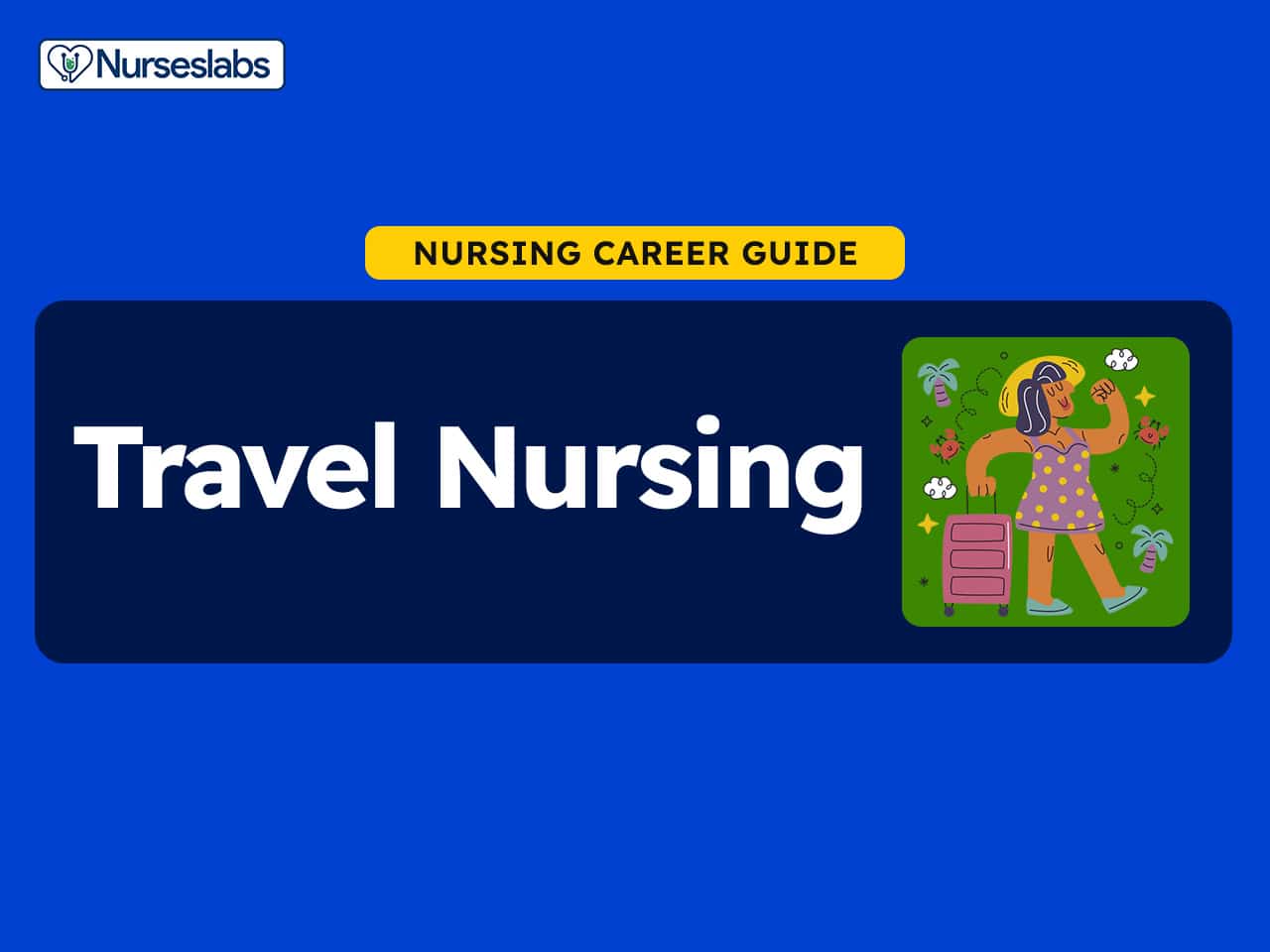
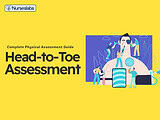



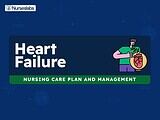
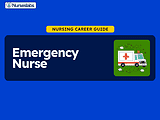
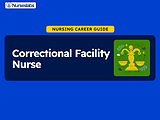
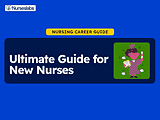
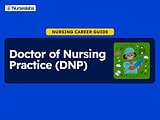

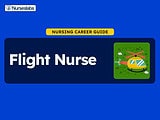
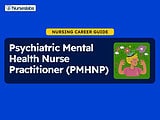
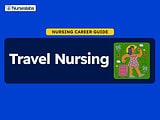
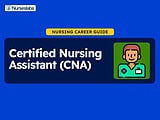
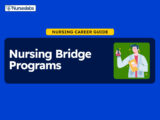
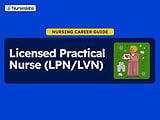

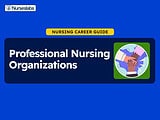
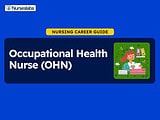
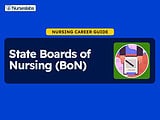

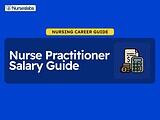

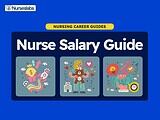

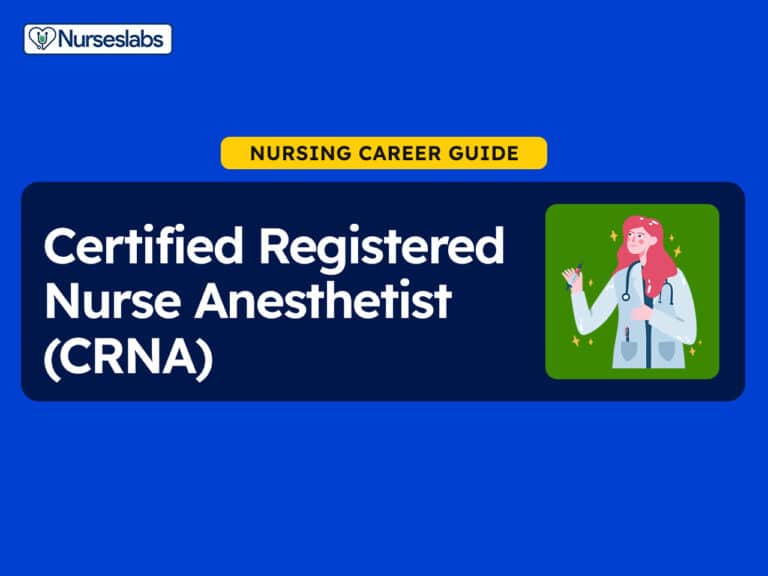


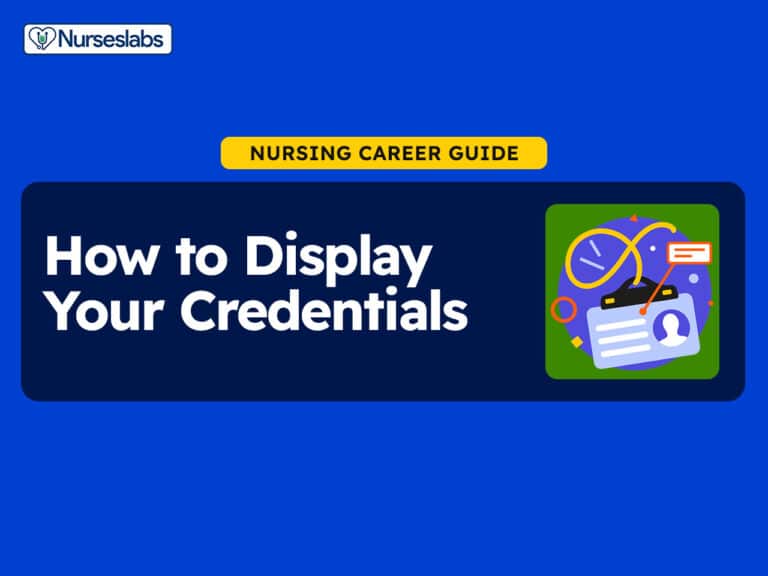
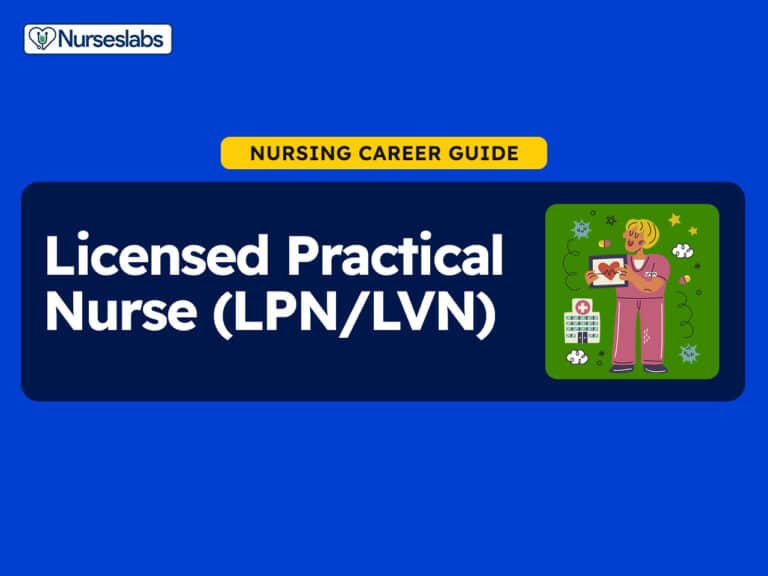
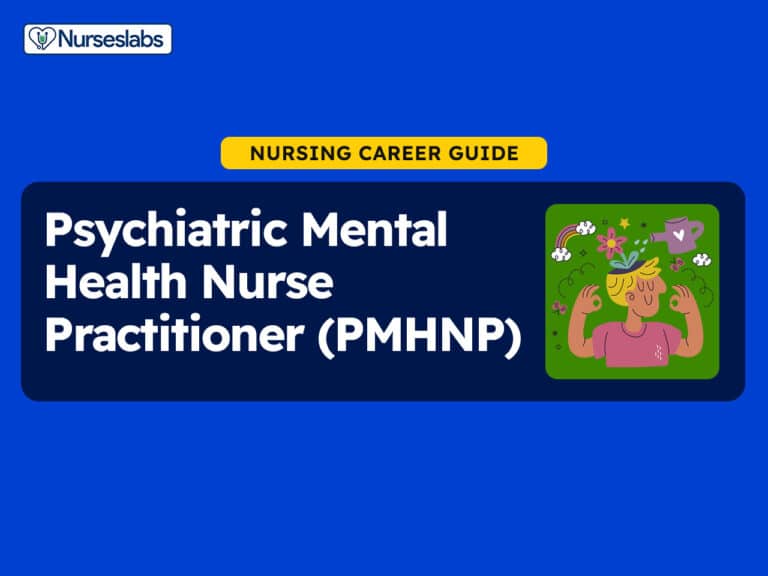
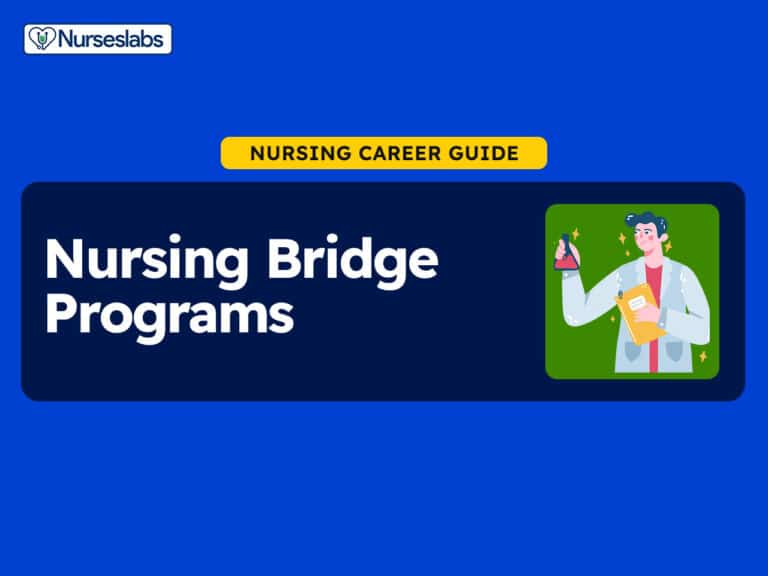
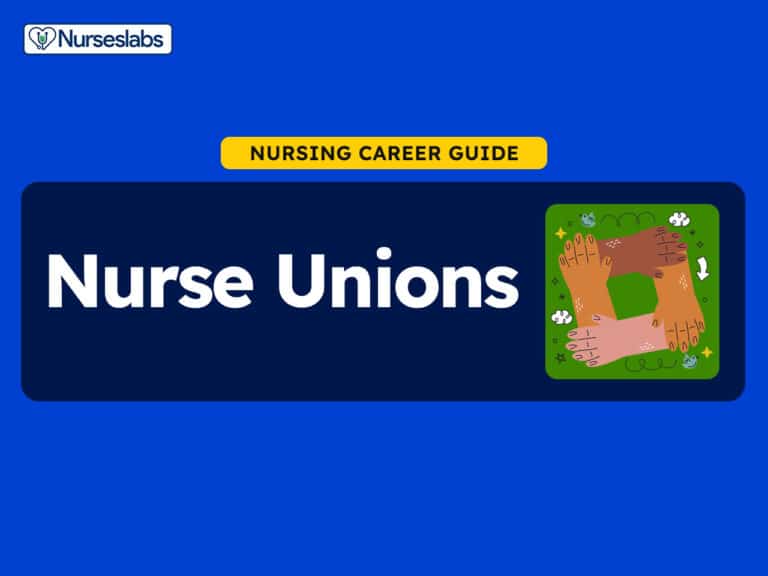

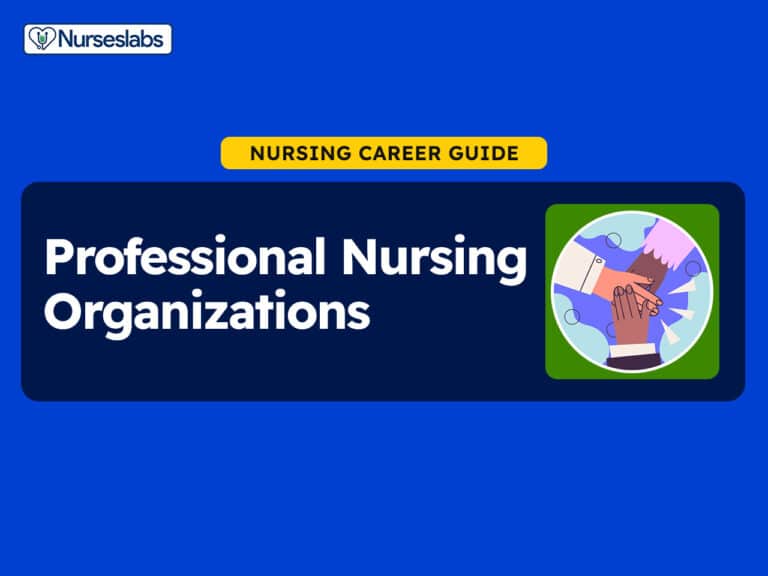
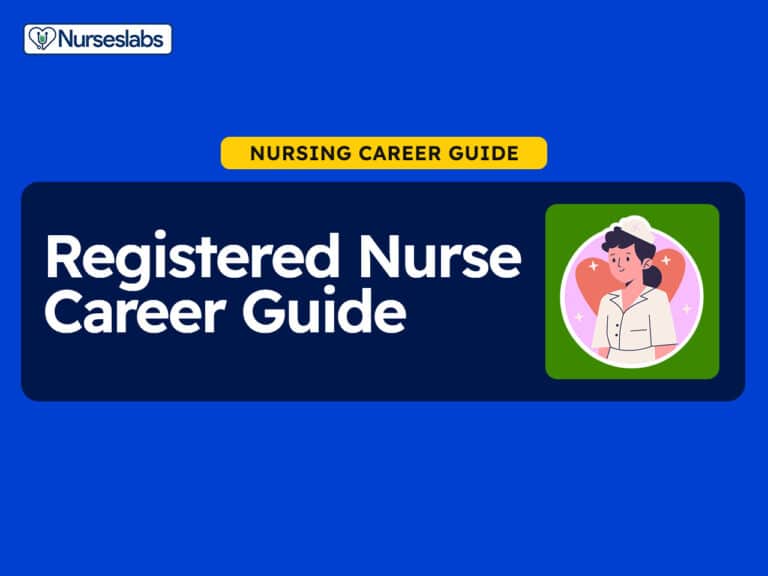
Leave a Comment